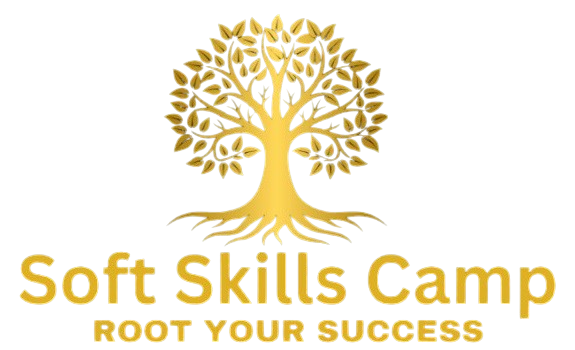In today’s fast-paced world, effective communication is more crucial than ever, yet it remains one of the most overlooked soft skills in many workplaces. Whether you’re interacting with a team, presenting to clients, or negotiating with stakeholders, the ability to communicate clearly and confidently can significantly impact your success. Here’s why mastering communication is essential and how you can start improving it today.
Why Effective Communication Matters
Effective communication is at the core of every successful business and relationship. It goes beyond just conveying information; it’s about ensuring your message is understood and that you’re able to listen and respond thoughtfully. Poor communication can lead to misunderstandings, missed opportunities, and frustration, while strong communication fosters collaboration, trust, and productivity.
Some key benefits of effective communication include:
- Building Stronger Relationships: Clear communication helps establish trust and respect among colleagues and clients.
- Avoiding Misunderstandings: When ideas are shared effectively, there’s less chance for confusion, reducing the risk of errors and conflicts.
- Boosting Productivity: A team that communicates well can execute tasks more efficiently and work toward common goals seamlessly.
- Enhancing Leadership: As a leader, clear communication is key to motivating and guiding your team toward success.
Common Challenges in Communication
Many professionals face barriers when it comes to effective communication. Some common challenges include:
- Lack of Active Listening: Often, people focus on speaking rather than truly listening to the other person’s perspective.
- Ambiguity: When messages are unclear or overly complicated, it can lead to confusion and inefficiency.
- Non-Verbal Communication: Body language, tone of voice, and facial expressions all play a role in how a message is received. Misalignment between verbal and non-verbal cues can send mixed signals.
- Cultural Differences: Global teams may struggle with cultural nuances and differing communication styles.
How to Improve Your Communication Skills
Improving your communication skills doesn’t happen overnight, but with the right approach, you can see significant results. Here are a few tips to get you started:
- Practice Active Listening
Active listening involves not just hearing words but also understanding the message behind them. Focus on what the speaker is saying without interrupting, and ask questions to clarify when necessary. Show empathy by acknowledging their feelings and perspectives. - Be Clear and Concise
Avoid jargon or complicated language. Instead, be direct and to the point. When presenting complex ideas, break them down into easy-to-understand concepts. Using analogies or visuals can also help make your message more digestible. - Be Mindful of Non-Verbal Cues
Your body language speaks volumes. Maintain eye contact, use an open posture, and watch your tone to ensure your non-verbal cues align with your words. Small adjustments can make a big difference in how your message is received. - Foster Open Feedback
Encourage open communication by creating a space where feedback is welcomed. Whether it’s from a team member or a client, feedback can provide valuable insights that improve your communication strategies. - Adapt to Your Audience
Tailor your communication style based on your audience. Communicating with a colleague may be different than presenting to a client or leading a team meeting. Adjust your tone, style, and approach to suit the situation and the people involved.
Conclusion
Effective communication is a vital skill that enhances your professional success, fosters strong relationships, and drives business results. By developing active listening, clarity, non-verbal awareness, and feedback openness, you can ensure your communication is impactful and effective. Whether you’re looking to enhance your individual skills or improve team dynamics, mastering communication will set you apart in today’s competitive landscape.
If you want to enhance your communication skills or need training for your team, reach out today. Let’s work together to develop communication strategies that will help you achieve your professional goals.
